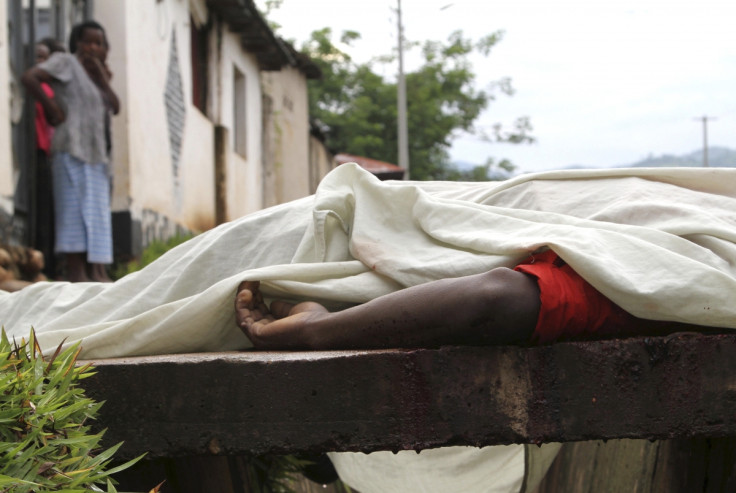Burundi's withdrawal from ICC is 'a major loss for the victims of the gravest crimes' claims HRW
What justice for hundreds of people who have been tortured, killed, raped or disappeared in Burundi?

Burundi's withdrawal from the International Criminal Court (ICC) is a major loss for the victims of the gravest crimes, a rights group has warned.
Less than six months after the ICC said it was opening a preliminary examination into grave crimes committed in the African nation since the beginning of its deadly political crisis in April 2015, Burundi became the first state to ever withdraw from the Hague-based court that investigates and prosecutes cases of genocide, war crimes and crimes against humanity.
ICC exit: What next for Burundi?
Under the ICC's founding Rome Statute, withdrawal does not come into effect until one year after the state has formally announced it to the United Nations secretary-general.
The ICC may still exercise its jurisdiction over crimes committed on the Burundian territory or by its nationals since 1 December 2004 and until 12 months after the nation's withdrawal.
"Burundi has failed to hold people responsible for brutal crimes to account and has sunk to a new low by attempting to deny victims justice before the ICC," said Daniel Bekele, Africa director at Human Rights Watch (HRW). "This latest move only confirms Burundi's continuing disregard for human rights and the rule of law."
Since 2015, HRW found that "hundreds of people have been viciously tortured, killed, raped or disappeared" in Burundi. Hundreds of people have been arbitrarily arrested, or detained on trumped-up charges.
But the organisation claims that Burundi's national courts cannot or will not prosecute the most serious international crimes, as its justice system is "deeply corrupt" and "manipulated by ruling party officials".
In HRW's view, the ICC is "a court of last resort" for Burundi's victims hoping for credible investigations and for those responsible for these crimes to be brought to justice.
"The ICC remains the only path to justice for many victims of the gravest crimes when national courts are unable or unwilling to try these cases," Bekele added. "African countries should distance themselves from ICC withdrawal, and reaffirm their commitment to accountability for atrocities in Africa."
Since 2009, other nations have been stepping up the rhetoric against the ICC, which they say is biased against African states. On 26 October, Gambia joined South Africa and Burundi in withdrawing from the court.
However, a number of African ICC members − Botswana, Ivory Coast, Nigeria, Senegal and Tunisia − have been vocal supporters of the world court and have openly opposed an African Union call for ICC withdrawal in July.
© Copyright IBTimes 2025. All rights reserved.






















